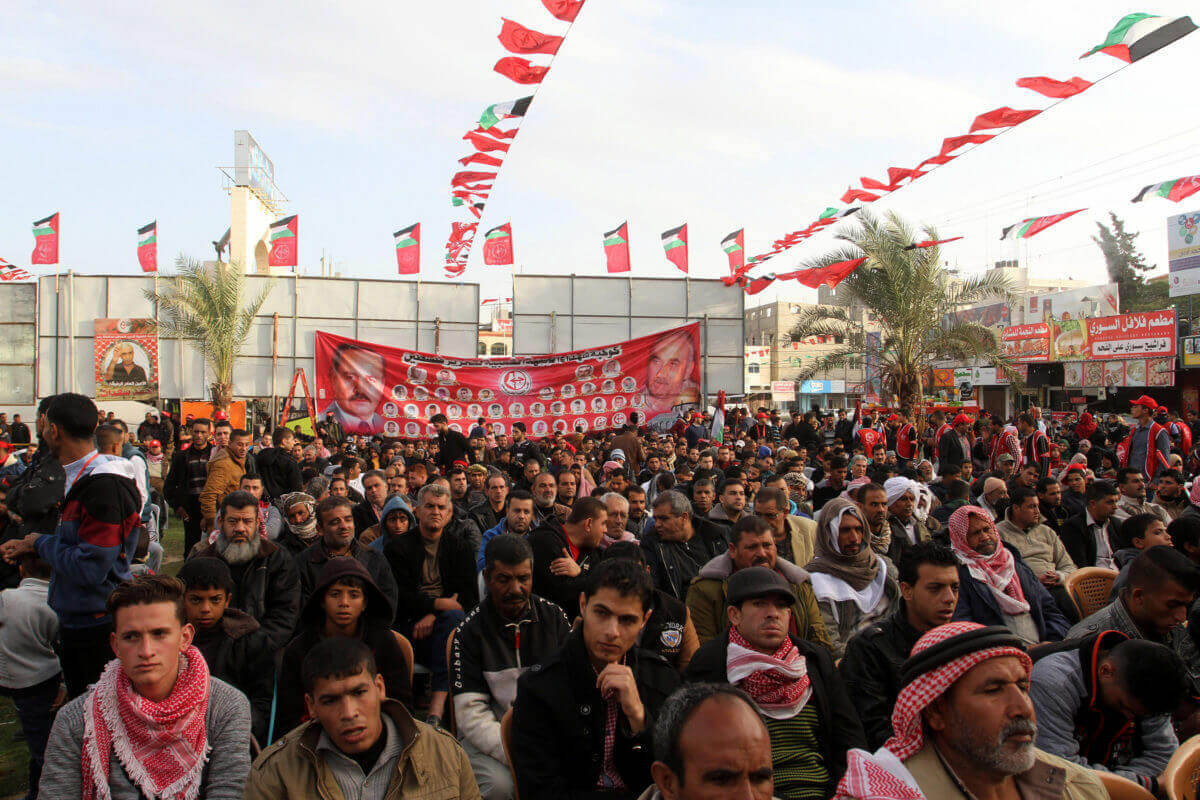On Monday, the Popular Front for the Liberation of Palestine (PFLP) called on Palestinian civil society groups and non-governmental organizations to unanimously reject conditions of funding from the European Union (EU).
The conditions, which were outlined in the EU’s grant proposals last year, identified around seven Palestinian political groups as terrorist outfits, calling for civil society organizations to vet grantees and ensure that they are not in affiliation with these parties. However, these organizations have described the same conditions as the criminalization of the national Palestinian struggle against Israeli occupation.
Lubnah Shomali, a manager at the BADIL Resource Center for Palestinian Residency and Refugee Rights and a spokesperson for the Palestinian National Campaign to Reject Conditional Funding (PNCRCF) said, “The EU’s imposition of the clause and restrictive measures constitutes the criminalisation of the Palestinian liberation struggle and its freedom fighters based on Western criteria and standards.” The BADIL Center reportedly lost €1.7 million in funding for a three-year justice mobilization project after refusing to adhere to the EU’s anti-terror funding condition.
See also: Palestine Rejects Medical Aid Sent by UAE via Israel
In a bid to ensure that its taxpayer money is not spent on terrorist activity, the EU had passed a directive in 2017 which stipulated that NGOs receiving EU funding cannot use these resources to fund designated terrorist organizations or individuals affiliated with such groups. As per Article 1.5 under Annex II of EU’s general conditions to finance grant contracts, civil society groups are required to screen individuals and third-party beneficiaries of the grants. Palestinian factions such as the Islamic Jihad, Hamas, as well as the PFLP, which have been registered as terrorist groups on their sanctions list, are to be excluded from funding.
Shomali told Al Jazeera that this would create a hostile situation, in which grantee organizations would have to determine whether individuals can be beneficiaries of EU-funded projects. For long, the Palestinian national campaign has denounced this as they do not wish to be perceived as “security accomplice[s] against its people”, since such policing actions traditionally lie with governmental authorities and not civil society actors.
See also: UNHRC Passes Resolution on Penalties Against Israel for Settlement Activity
In December 2019, the PNCRCF, which stands against administrative requirements that “deny [our] inalienable rights”, was signed by 230 Palestinian organizations, calling for the EU to revoke its conditional clause. The campaign also pledged to resist and stand against international actions that criminalize the Palestinian struggle and its political parties, along with ”dangerous” attempts to involve civil society. The statement read: ”Palestinian political factions and forces are not terrorist organisations and their popular, national, and legal statuses are not determined by a European document.”
Olga Deutsch, Vice President of Israel-based NGO Monitor, said that this movement removes all reasonable doubts regarding the relationship between the PFLP, an EU-designated terror group, and the NGOs supporting it, which the Monitor has apparently long-warned EU donors about. The UN Security Council, which has long-supported Palestinian sovereignty claims, had called for the complete dismantling of the PFLP last year. The PFLP has previously also refused to participate in the formation of a government involving the Palestine Liberation Organization (PLO).
Image Source: Middle East Monitor

